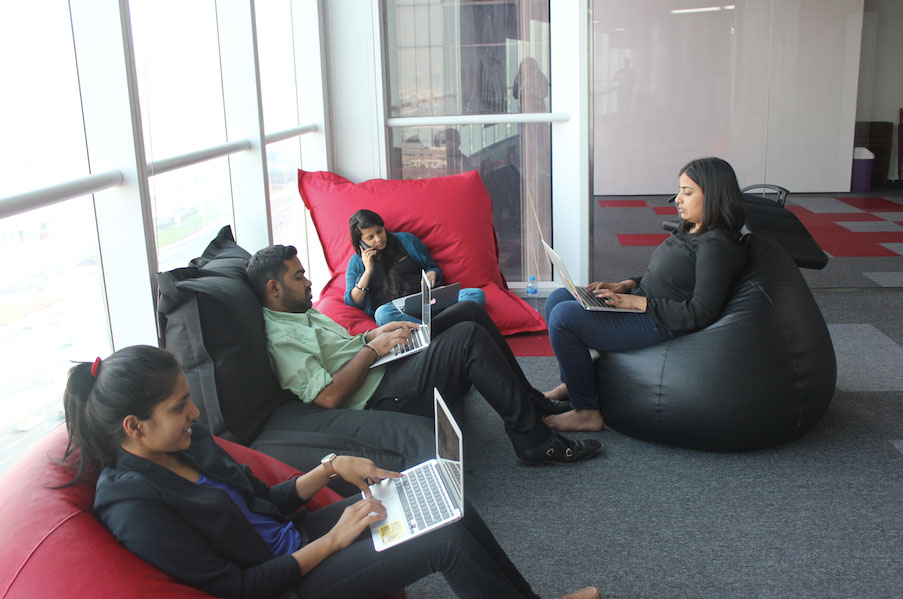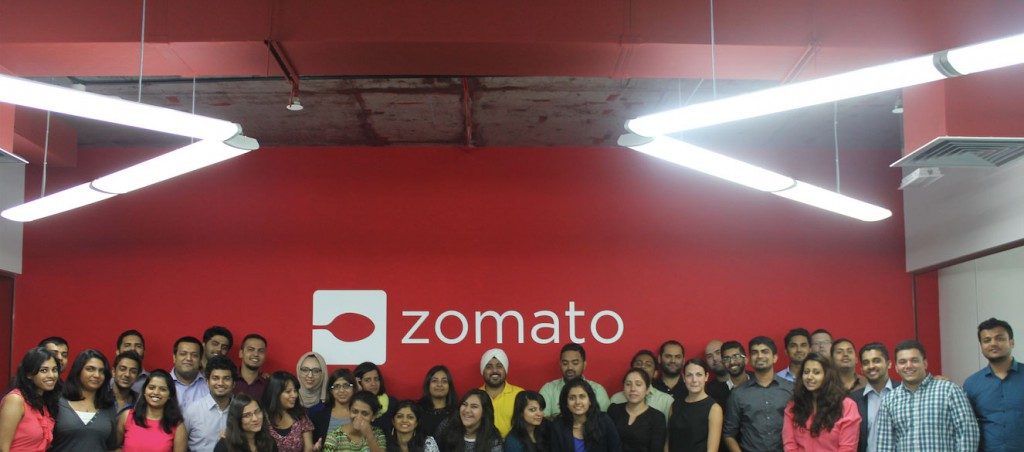“When in doubt, just Google it.”
That’s the 21st Century norm. When it comes to eating out, I’d like to say “ Let’s Zomato it” (I sincerely hope this phrase catches on so I can take credit for it). But let’s face it, if you’re a foodie, chances are slim you haven’t used Zomato, unless you’ve been living under a rock.
From its humble beginning in 2008 as a small menu display website, it’s now India’s largest restaurant guide listing over 42,000 restaurants across 12 cities in the country. In addition, Zomato now has a major presence in the UAE, Turkey, UK, Brazil, Qatar, Canada and among other. As a major foodie,I find myself relying heavily on Zomato to help me decide my weekend dinner plans. The ever so frustrating conundrum of ‘where do we eat today?’ has been made easier by this restaurant bible of sorts.
Now, with the introduction of Zomato Cashless, users can pay by ‘checking into’ their favorite restaurants on social media [hooked up to credit cards], eliminating the need to carry cash.
We caught up with Zomato’s head honcho of operations in the United Arab Emirates, Viraj Sawant. Take a peek into the ins and outs of Zomato Dubai:
1. How would you compare Zomato today with Zomato four years ago?
In terms of number and stats we’ve definitely come a long way. We’re now close to nearly 1000 employees compared to 200 over three years back. Our revenue per year is on the rise. But our core values have never changed. We’re still a start-up at heart,with the same mind-set we had when we started off.
A young and energetic bunch of folks trying to deliver the best value possible through a great product.
2. What makes Zomato interesting and keeps user engagement so high?
What’s differentiated us from the rest is our product in terms of fresh and updated restaurant information. Zomato provides in-depth information for over 1 million restaurants across 22 countries. Our users across the world visit the website and mobile apps to go out for a meal, get home delivery, catch up at a cafe or enjoy the local nightlife.
Additionally, Zomato also has a strong social angle that brings users together by letting them build networks of foodies they trust. There is no one who has gone into the depth of the restaurant industry like we have done.
3. So where does Dubai rank among foodies and foodie cities worldwide?
Eating out has become a popular recreation for people here. Today, there are over 6300 restaurant listings on Zomato in Dubai for people looking to go out for a meal or order in.
There is an open-mindedness to try out new cuisines and flavours and we only see this trend gain momentum in 2015. Chefs are also experimenting with new flavours a lot more. Dubai has a vibrant dining scene and an extremely fast growing restaurant industry.
4. What would you say is the most popular cuisine in Dubai?
There is a high demand for global cuisines in Dubai and we’ve seen an increase in demand for Indian, Chinese, Japanese and Italian food. Dubai has an extremely cosmopolitan, tech savvy population that is willing to experiment with what the city’s chefs have to offer.
Interestingly, 3 in 4 people prefer delivery over dining out.
5. What’s the work culture like at Zomato?
Although there are well over 1000 of us across 22 countries, we still function like a startup in terms of how we live and work. I’d say we still have the same hustle that we did when Zomato was Foodiebay and was functioning out of a living room in 2008. We push our people out of their comfort zone and encourage them to exceed their potential.
We have always been a transparent organisation – a place where if someone wants to know something, they can simply ask. That’s the kind of culture we’re building. We’re focused on instilling a sense of ownership and there’s immense room for people to grow and learn here.
6. Zomato recently introduced the Cashless feature. How has this been catching on?
With cashless payments system, diners can now settle their bill at participating restaurants using the Zomato app on their smartphone rather than paying with cash or physically swiping their cards. The response so far has been fantastic.
With the growth of mobile-only users in Dubai, we see a lot of potential for our product.
7. Zomato has been in the process of acquiring several other websites and expanding its global presence? Tell us more about this.
As far as our strategy on acquisitions is concerned, it’s not really about organic vs. inorganic growth; it’s about hitting the ground running with the right team. We enter markets as soon as we see a product-market fit and have a team that can move quickly.
On the other hand, in countries where there is no market leader, we have built from scratch by entering the market using our feet-on-street model of collecting data. Although, we are not looking at expansion into any new markets for another 9 months, we will be taking Zomato to newer ‘geography’ once we have the bandwidth to do so.
8. What are some of the challenges you are currently facing in Dubai?
The biggest constraint right now is having enough bandwidth in our sales and operations team in Dubai to execute everything.
This year, we are focused on on expanding our product offering to both consumers as well as merchants especially with the newly introduced cashless payments and Zomato for Business app.
9. What is something that people don’t know about Zomato Dubai?
Our approach is very simple as an organisation. For us, its about striking the right balance between speed and building quality products, with the right team. We have a habit of pressure testing our people by putting challenges in front of them.
Right from collecting data for over 15,000 restaurants on foot in the extreme cold, and doing quality checks on everything before we could say London is live in 35 days; to pulling off all nighters to ensure a new product launch – we have always come out stronger as a people. We party hard and work harder.
10. What can foodies expect from Zomato in the near future?
We’re now focusing on consolidating our presence in our existing markets as well as building a strong integrated product for the migration of Urbanspoon & Mekanist to Zomato. There is a lot on the cards in terms of product innovation and the different geographies we plan to go to with the cashless feature and online ordering.
We will launch the online ordering service overseas in a few months starting with Dubai, Jakarta, Manila and Sydney. In the long run, we’re working towards creating a seamless dining experience for our user base.
Tell us what you think of Zomato Dubai. Any recommendations for the app? Tell us in the comments below.
Recommended: Nooks & Corners: Per Te Review












